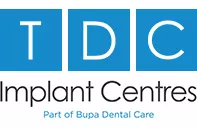We aim to provide you with information that helps you make the best treatment decisions. In this section, we provide useful articles to answer the questions we are often asked, and tell you more about the award-winning TDC team.
Can I get implants with gum disease?

“You can have dental implants if you have gum disease” says TDC Implant Centres Lead Surgeon, Dr Michael Zybutz.
“Unfortunately, many of our patients have been incorrectly told gum disease or bone loss makes them unsuitable for dental implant surgery.
So they suffer unnecessarily with missing and loose teeth, or uncomfortable dentures.
They live with constant dental pain, unable to eat certain foods for fear of further loosening or tooth loss and, sadly, too self-conscious to smile.
They come to us as a last hope, asking: ”I have gum disease, can I have implants?”
When Anthony (Dr Anthony Zybutz, Lead Dentist) and I tell them we can safely restore full sets of fixed teeth on implants, restoring their smiles and self-confidence in a matter of hours, it’s a huge relief for them.”
What is gum disease?
Gum disease develops when the soft gum tissue and bone surrounding your teeth become infected. Gingivitis is the early form of gum disease, occurring when there’s a build-up of plaque (deposits of bacteria) on the teeth.
If untreated, the plaque can spread beneath the gum line and develop into a more advanced gum disease called periodontitis or periodontal disease.
What causes gum disease?
The leading cause of gum disease is plaque build-up, usually caused by an inadequate oral hygiene routine.
Smoking is another known cause, and hereditary illnesses can be a factor.
It’s estimated that 90% of the UK population have some level of gum disease*, with many unaware they have it in the early stages.
According to the American Academy of Periodontology (AAP); “Gum disease is often silent, meaning symptoms may not appear until the advanced stages.”
Can you prevent gum disease?
“People don’t realise the consequences of poor oral hygiene and not caring properly for their teeth” says Dr Michael.
“Just two minutes of brushing teeth twice a day using a fluoride toothpaste keeps your mouth healthy, reducing your chances of developing gum disease. It can save years of pain, worry and a lot of expense.
Flossing as part of your daily oral hygiene routine is highly recommended to ensure all parts of the teeth are properly cleaned.
Dental floss and interdental brushes can reach the small spaces between your teeth and around the gum line.”
How is gum disease treated?
How you treat gum disease varies by patient.
It’s important to have regular check-ups with a dental professional as they can catch any issues and advise on the best gum disease treatments for you.
Gingivitis is usually reversible with a good at-home oral hygiene routine (diabetes and pregnancy can affect how well the body can reverse the effects of gum disease); your dentist or hygienist can offer advice regarding flossing and brushing.
People more severely affected with periodontal disease, may require antibiotics or surgical solutions such as dental implants.
However bad you think the condition of your gums may be, don’t put off seeking help. Your dentist can advise the best treatment options.
Why is gum disease serious?
In the early stages of gum disease (gingivitis), key symptoms are bleeding gums when brushed, and the gum tissue becoming swollen and sore.
Additional symptoms include bad breath and an unpleasant taste in the mouth.
Left untreated, gum disease can advance to periodontitis (periodontal disease) which is more serious as the gums shrink and jawbone density can become reduced.
Eventually the receding gums and bone can no longer support your teeth, so they become loose and can even result in tooth loss.
And there are wider implications for your health: “Periodontal disease can be linked to stroke, heart disease, diabetes and other chronic illnesses,” say the AAP.
Can you get dental implants if you have gum disease?
At TDC we use an advanced, highly skilled technique called Smile in a Day, where dental implants and a first full set of fixed teeth are placed on the same day.
The treatment is suitable even for people with severe gum disease.
When performed by a suitably experienced dental surgeon, the procedure solves all the problems associated with gum disease, loose and missing teeth.
As well as new teeth that look and function like natural teeth, gum infection is eliminated, and oral health restored.
Can I have dental implants if I have bone loss?
Yes, TDC Smile in a Day is suitable for replacing lost teeth for patients with extreme bone loss.
The implants, (usually four per jaw – the technique is sometimes referred to as “All on Four”), are placed at very precise angles, making use of the maximum amount of available jawbone, even if there’s loss of bone density. In most cases bone graft surgery is not needed.
Occasionally patients have specific medical or dental needs that require additional treatment such as zygomatic (cheekbone) implants.
Even with zygomatic implants, the procedure can be carried out on the same day.
How is Smile in a Day different from traditional implant treatments?
With traditional dental implants, treatment involves more stages, often requiring additional surgical procedures such as tooth extractions and bone grafts, and many more months of healing time.
Smile in a Day is an advanced, less invasive implant placement technique, condensing multiple steps into much-reduced overall treatment time.
We extract any necessary teeth, place the dental implants (they replace your natural tooth roots) and fixed new teeth on the same day.
Patients arrive with loose and missing teeth and leave with full sets of teeth securely fixed on dental implants, beautiful new smiles and renewed confidence.
Your new teeth remain in place for about three months, night and day, to allow the bone to integrate with the implants and for your gums to settle. There is no need to wear a removable denture during this healing period.
The first set of teeth is then exchanged for the final, long-lasting set, crafted to give you the perfect fit.
Can any dentist perform Smile in a Day?
Whilst any qualified dentist registered with the General Dental Council can legally place dental implants, it is important to find a dentist with the skill and experience to safely deliver the clinical and aesthetic results you hope for.
All surgical procedures carry some risk, so it’s especially important when considering advanced, more complex, dental treatments such as same-day dental implants.
TDC Implant Centres have focused on dental implant treatment, specifically Smile in a Day same-day dental implants, since 2010.
The majority of our patients require at least one full jaw of teeth restored on implants (often both).
Under the clinical care of Drs Michael and Anthony and their teams, we routinely help the most complex cases.
Specialist periodontal care
The AAP describe a periodontist as “a dentist who specializes in the prevention, diagnosis, and treatment of periodontal disease … and in the placement of dental implants.”
Dr Michael is a UK-registered specialist periodontist with over 25 years’ experience.
To qualify as a specialist, dentists must be registered with the General Dental Council (GDC) and demonstrate proven additional training, qualifications and experience in their specialist field.
As Dr Michael specialises in the area of dentistry concerning the gums, jawbone and dental implant placement, our patients are often referred to us by general dentists, as well as patients who refer themselves.
Gum disease and bone loss are not barriers to dental implant treatment
“So many people come to us believing their gum disease and jawbone loss means they’re destined for a lifetime of dental pain, uncomfortable dentures and avoiding certain foods – and struggling with self-confidence as they’re embarrassed to show their smile,” says Dr Anthony.
“We founded TDC Implant Centres specifically to help these people.
We know Smile in a Day implants offer a life-changing solution.
Whatever the reasons for your problems, we’ll help find the right tooth replacement options for you.
Just take the first step – come and see us. We will never make you feel judged.”
Risks factors for dental implants
Dental implants are a proven and long-lasting fixed solution to loose and missing teeth, and dentures, and at TDC we are very proud of our consistently outstanding results and success rates.
It should be noted that all implant treatment carries a risk of failure and gum disease can be a risk factor. The key risk factors are as follows:
· Gum disease (especially untreated): Please note that gum disease is completely treated when all teeth are extracted before the implants are placed.
At TDC, we highly recommend attending regular hygiene appointments after treatment is completed so any issues can be identified before any potential issues become serious.
· Poor oral hygiene: Well cared for dental implants can last a lifetime, just like natural teeth.
Once the dental implant treatment is complete, it is the responsibility of the patient to look after their new teeth on implants – a good and regular at-home dental hygiene routine is vital.
At TDC we provide you with all the information you need to ensure you can keep your new teeth in the best possible condition.
· Smoking: smoking is not a barrier to having dental implants, but studies have shown that overall success rates are lower than with non-smokers.
However, nicotine constricts your blood vessels, depriving the tissue in your mouth of oxygen and nutrients, and also reduces saliva flow, all of which slow down the healing process.
Smoking also lowers your immunity and ability to fight infection.
· Diabetes (uncontrolled): Uncontrolled diabetes can reduce implant success rates as patients are more susceptible to infections, thereby affecting healing time and the ability to heal well.
The risk of dental implant failure is lowered when the diabetes is controlled.
Book your free consultation
If you worry about loosening teeth, tooth loss or gum recession, and would like to understand if you could be a suitable candidate for dental implants after gum disease, we offer a free initial consultation with one of our experienced implant dentists.
Simply request your free consultation or call 0800 012 2086 to speak with one of our friendly Patient Advisors.
What can I eat after dental implant surgery?
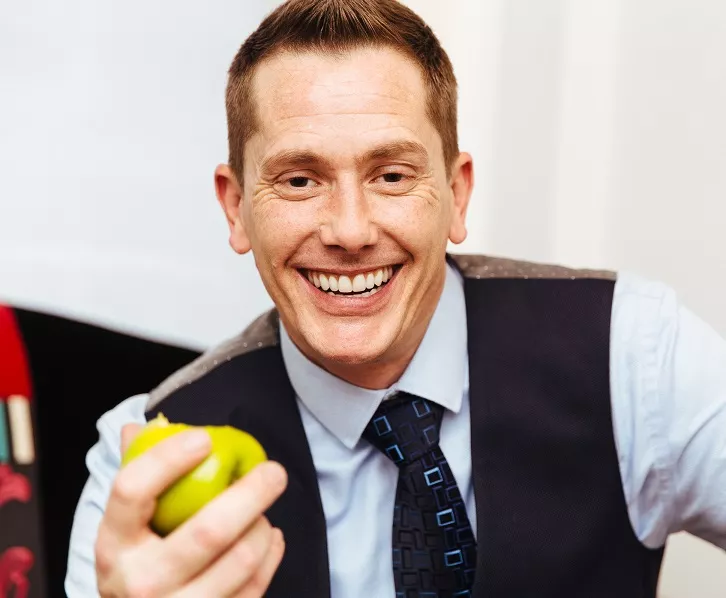
“What can I eat after dental implant surgery?”
This is an important question for anyone who has to avoid certain foods due to the challenges of living with loose and missing teeth or dentures: the anxiety of losing more teeth when they bite on hard foods such as raw vegetables, or the embarrassment of only being able to eat soups and soft foods when eating out.
People considering implant treatment want to know what they can eat immediately after their dental implant procedure, and also the foods they can safely eat once they are living permanently with their new fixed teeth.
The answer is that replacing loose and missing teeth with dental implants means you’ll be able to eat and enjoy all hot and cold foods – just as you would with healthy natural teeth. Crisp apples, crunchy bread and chewy steaks are all back on the menu! So, not only can eating become a pleasure again, you’ll be able to eat the nutritious foods you need to keep healthy.
But there are a few things you need to know….
• What to eat after dental implant surgery
With TDC Smile in a Day same-day implants, the placement of your dental implants and a first set of fixed teeth take place on the same day.
Made from a high-quality composite material, these bespoke teeth are crafted to fit very comfortably and look just like real teeth. They stay secured in place, 24 hours a day, for about 8-12 weeks during the healing process i.e. whilst your bone integrates with your implants.
The reality is that you could bite into an apple with your new teeth on the actual day of dental implant surgery.
However, we suggest to our patients that they stick with a soft food diet including foods such as yogurt, soup and mashed potatoes for the first week or so after their dental implant surgery.
This is to make sure that you don’t bite your lip or cheeks whilst you are getting used to your new teeth. Remember that you may have spent many years with very wobbly teeth and you now have a set of very solid, secure teeth, and they may take a bit of controlling!
· Eating with your first set of fixed teeth
After the first few days, you will be getting used to the feeling of having new teeth in your mouth. We recommend that you build up gradually and eat only foods that you can cut with a fork whilst wearing your temporary first teeth.
In the weeks after implant surgery, you can gradually experiment with different foods. Don’t worry if you feel nervous about chewing and biting – that is very normal, especially if you have worried about loose or missing teeth for a long time.
Your confidence will grow, and you will start to enjoy eating again.
If you previously wore a denture, you’ll find that you can taste the foods you eat again as there is no bulky strap covering your palate.
• Eating with your final fixed teeth
About 3 months after dental implant surgery we exchange your first set of temporary teeth for your final set.
Again, they are bespoke, and are crafted to perfectly fit the shape of your settled gums.
These new teeth are also made from a high-quality composite material, and are reinforced with a titanium bar to combine optimum strength, durability and shock absorbency.
Now you can safely eat any foods you want – you can enjoy all types of food, and the experience of eating, just as you would with natural teeth.
There are many benefits to having dental implants, and being able to bite and chew normally again – and without worry – can be life-changing. You don’t have to be anxious about losing more teeth or slipping dentures.
And the best news is that your implants will hold your bone in place and stop the natural bone loss (resorption) associated with missing teeth.
· Treat dental implants as if they are your natural teeth
Dental implants offer a secure, fixed tooth solution as they are screw-like titanium “roots” that are surgically inserted into the jawbone to replace natural tooth roots. A bridge of teeth can then be placed on top and held securely in place.
The wonderful thing is that they look and function just like natural teeth.
But do remember that they are not bionic even if the implants are made from titanium! They can chip just like natural teeth, so we advise our patients against crunching on hard bones or opening bottles with their new teeth! If they do chip, they are easily repaired with natural tooth bonding techniques, but prevention is the best approach.
· Enjoy eating out!
Many patients tell us that, before implant surgery, they have avoided eating out in restaurants or dreaded going to social events that involve food or meals. Their worry and embarrassment around their loose and missing teeth made them too self-conscious to eat in front of others.
Once you have your new teeth on dental implants (remember to be careful if you still have your temporaries in), you can relax and choose anything on the menu. You are no longer restricted to life on a soft food diet. Anxiety around eating in public becomes a thing of the past.
What our patients say
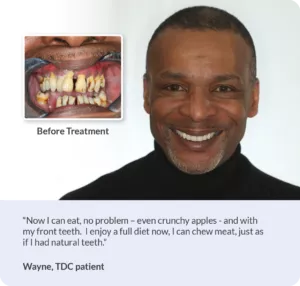
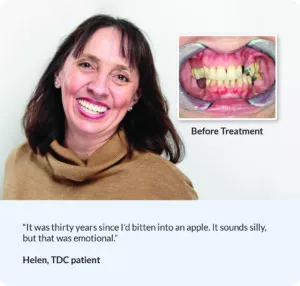
Book your initial consultation
If your loose and missing teeth, or dentures, affect the foods you can eat and enjoy, TDC Smile in a Day dental implants may be the solution for you.
You can call 020 3553 6415 to speak with one of our friendly Patient Advisors and book your free* no-obligation consultation with one of our experienced Smile in a Day implant dentists.
Why are dental implants so expensive?

‘Sometimes people ask me why dental implants cost so much,’ says Dr Anthony Zybutz, co-founder and Advanced Aesthetic Dentist at TDC Implant Centres.
‘I tell my patients that they’re paying for treatment that will transform their lives.’
‘But they are also paying for specialist care, for state-of-the-art equipment and the use of world-leading dental laboratories that make beautiful, long-lasting teeth.
This is a procedure that will enrich every aspect of their life, enabling them to look younger, eat whatever they want, and no longer refuse dinner invitations because they fear the embarrassment of loose teeth.’
We’ll restore your confidence
‘Almost every patient we see uses the same word ‒ “confidence” ‒ when asked how Smile in a Day has improved their life,’ says Dr Anthony. ‘They just can’t believe the huge difference it’s made to how they feel about themselves.
‘Many patients have suffered for years with painful, infected teeth or wobbly dentures. And as your eyes and teeth are the two things people focus on when talking to you, these patients were scared to smile or speak. They were self-conscious about their bad breath and how their teeth looked.
‘It’s incredible to see them blossom and no longer hide their mouth behind their hand. It’s even easier to put on lipstick as there’s more support for your lips. It’s a total transformation.’
We always use the best quality components
‘We’ve been treating patients with Smile in a Day for over a decade and our approach is to use high-quality “tried and tested” implants.
We know these deliver the most dependable long-term results, rather than the “latest and greatest” implants that may not be as predictable,’ says Dr Anthony.
‘My brother Michael, the co-founder of TDC, has a post-graduate degree in Periodontics (the study of bone, gums and implants) from one of the leading dental schools in the US and has been placing implants for over 25 years.
This puts him in an excellent position to select the very best for our patients.’
As with all things in life, high-quality implants come at a price.
‘We use some of the most expensive implants on the market, ones that we know give predictable and highly successful results. We know our implant manufacturer personally and have worked with them for many years,’ says Dr Anthony.
You’re paying for peace of mind
With a caring, highly skilled, extremely experienced team that you can trust to take you through every step of the Smile in a Day procedure, rest assured you’re in safe hands. Lead Surgeon Dr Michael Zybutz personally oversees our UK-based clinics located in Harley Street and Folkestone.
‘When considering having the Smile in a Day procedure, we know how important it is for people to be able to read genuine, unbiased reviews by those who’ve undergone the treatment themselves,’ says Dr Anthony.
‘That’s why TDC subscribes to both Feefo and Trustpilot where reviews are independently verified so that patients can really trust what they’re reading. We’re very proud of our hugely positive reviews and so work hard to ensure our standards remain high.’
Patients often remark on what good value for money Smile in a Day is.
As one wrote in a recent review: ‘Everyone I dealt with was polite, friendly and professional. [They] looked after me exceptionally well on the day of surgery and made me feel at ease even though I was extremely nervous.
For me it was worth every penny. It seems a lot, but the confidence it has given me is priceless.’
Our aftercare is first-rate
‘Our team does this highly skilled dental implant procedure all day, every day,’ says Dr Anthony. ‘That means if you have any problems whatsoever afterwards we can fix them instantly. We’re here five days a week and will always see patients as quickly as we can. Clinics that employ “freelance” implant surgeons can’t offer this, nor can clinics based abroad.’
It’s a life-changing procedure
‘When patients see their new smile in the mirror, almost without fail they hug me and then they hug my nurse,’ says Dr Anthony.
‘They can’t believe how different they look and it brings a lump to my throat every single time. That moment makes it all worthwhile.’
And interestingly, it’s not just being able to eat or brush their teeth without discomfort that makes such a difference to patients’ lives, it’s being able to socialise without feeling self-conscious.
‘Humans are social beings,’ says Dr Anthony. ‘Having bad teeth can negatively affect being able to communicate with others because patients can’t speak properly or don’t want others to see their teeth. Without social contact people can easily become depressed and lonely.’
‘When researchers studied the survivors of the 2011 earthquake and subsequent tsunami in Japan, those who had lost or fractured dentures had significantly lower quality of life scores.
The disaster had a very negative impact not only on their oral health, but on their mental health. It was found that their biggest problem wasn’t being unable to eat properly, it was not being able to smile, which affected their interaction with other people.’
You can discard your dentures
‘No one wants to be like their grandparents with a set of teeth in a glass of water by the bedside,’ says Dr Anthony.
‘Dentures have many drawbacks: they can make it difficult to eat, speak and smile normally without fearing that they’ll come loose. And as dentures often need to be stuck on with glue, many people panic when they realise they’ve left the house without it.’
‘Replacing dentures with dental implants means you get teeth that function like real teeth,’ he says.
‘You can’t expect a piece of plastic to function like natural teeth but implants are different.’
‘After placing the dental implants, I ask all my patients to grasp their front teeth between their thumb and finger to see if they can move them.
When they realise how solid their new teeth feel their eyes light up as they can’t get over what it’s like to have stable, natural-feeling teeth again.
And it takes about two months before they realise they can stop worrying about always having denture glue to hand.’
TDC Smile in a Day treatment is cheaper than traditional implants
Smile in a Day implants cost about half as much as using traditional implant techniques to achieve the same results so they represent great value for money.
Not only that, it takes a lot less time to place them and requires just one surgery as opposed to three with traditional implants. If you’re travelling from distant parts of the UK (or from abroad) to have the procedure this also means fewer hotel and travel costs.
Our pricing is transparent
Everything you need to know about costs is explained on TDC’s Costs page.
Each arch (jaw) costs £15,950 – this includes everything needed to construct and place your implants and teeth (both the provisional and permanent sets) as well as your aftercare, any necessary follow-up appointments (except routine dental check-ups) and all components and laboratory fees.
The only additional costs are optional conscious sedation and zygomatic (cheekbone) implants. Sedation costs from £1,300 for single arch surgery and £1,500 for both the upper and lower jaws (payable directly to the anaesthetist).
‘Zygomatic implants are only needed in the most severe cases of bone loss: patients who don’t have enough bone in their upper jaw to support conventional implants,’ says Dr Anthony.
‘If you need to have them we’ll let you know well in advance. These cost from an additional £3,500.
Smile in a Day is a significant investment but one that’s definitely worthwhile if you consider that the alternative is wearing dentures for the rest of your life. You can put a price on quality.’
It’s a long-term investment
‘If you follow our Smile in a Day after-care instructions there’s no reason that your new teeth shouldn’t last a lifetime,’ says Dr Anthony.
‘However, although they’re made from high-quality materials, these are not bionic teeth and you need to care for them just as you would natural teeth by brushing your teeth twice daily with an electric toothbrush and using a Waterpik under the implant to remove any plaque and food residue.
The implants sit in bone and you need to get rid of bacteria from your teeth or they’ll attack the bone and gum that hold the implants in place.
We encourage our patients to have a dental check-up and see our dental hygienist every three to four months.’
The end result is guaranteed to make you smile
‘It doesn’t matter how many times we’ve done this procedure ‒ it’s about 1,000 at last count ‒ we still get a big kick out of showing our patients their “before” photo and then letting them see their new teeth for the first time,’ says Dr Anthony.
‘To hear someone say, “I love them, I just love them, they’re perfect,” when they view their transformation is always an emotional moment.’
Patients often say their only regret is not having Smile in a Day sooner:
‘One year since my permanent set of teeth were fitted and all good. Dr Zybutz and his team are still at the top of their game and he is the only dentist you want to see. Day to day, this has made such an improvement to my life in many, many ways and I only wish I’d seen Dr Zybutz 20 years ago.’
To find out more about the benefits of Smile in a Day dental implants treatment, and to discuss financing options, call one of our friendly Patient Advisors for a free consultation* on 020 3553 6415
TDC Dental Awards and Media Profiles
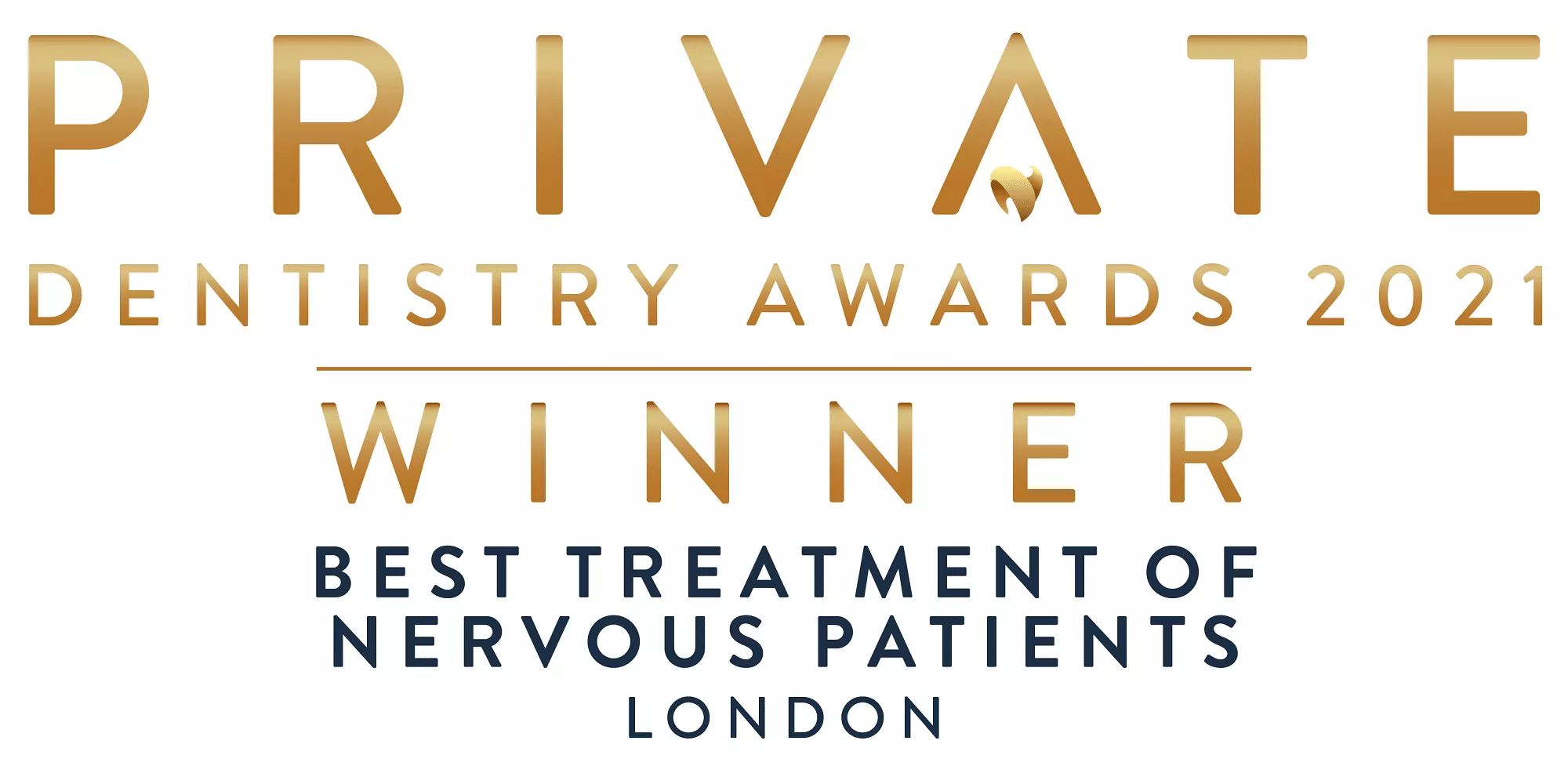
Being nominated as finalists and winning prestigious dental industry awards is the icing on the cake for the Total Dentalcare (TDC) Dental Implant Centres team.
It’s very rewarding for the whole team to get recognition for our hard work and results, especially in key categories that showcase our excellence in implant dentistry and commitment to outstanding patient care.
But it is also a valuable way for people considering treatment to understand more about TDC and the high standards of clinical care they can expect when they come to us for Smile in a Day dental implant treatment.
“Rewarding for our team, peace of mind for our patients”
“Our reputation for excellence is built on our specialist-led clinical work in implant dentistry and consistently outstanding results, along with the most positive treatment experience and patient care,” say TDC founders, Drs Michael and Anthony Zybutz.
“Every member of our dental team is totally committed to being the very best and is vital to our success. It gives us a great sense of pride when industry experts acknowledge our successes through nominations, awards and profiling us as experts in our field.
And this goes hand in hand with the hundreds of positive patient reviews we have received from patients who have had their Smile in a Day treatment at TDC Implant Centres.
This sort of feedback is rewarding for our team, and peace of mind for our patients.
Patients appreciate our culture of warmth and trust.
Not only do you get beautiful new teeth and a smile you can be proud of – once you come here, you become part of the TDC family.”
Some key TDC Implant Centre achievements
2021
Private Dentistry Awards
• TDC won in the “Best Treatment of Nervous Patients (London)” category at the 2021 Private Dentistry Awards
• We were finalists in the “Practice of the Year” category, and also for “Best Website”
Dentistry Awards
• TDC Implant Centres were awards “Highly Commended“ in the “Best Patient Care” category
• We were finalists in the “Best Website” category
2020
Private Dentistry Awards
TDC were finalists in four categories:
• Best Patient Care
• Practice of the Year, for TDC Harley Street
• Best Treatment of Nervous Patients
• Best Website
Dentistry Awards
• TDC won in the “Best Patient Care” category
• TDC Harley Street was awarded “Highly Commended” in the “Best Practice” category
• We were finalists in the “Best Website” category
My Face My Body Awards
TDC Implant Centres won in two categories:
• Dental Practice of the Year
• Dental Make-over of the Year (aesthetic dentsistry awards)
2019
Private Dentistry Awards
• We won the “Best Patient Care (London)” category at the Private Dentistry Awards 2019
• We were finalists in the “Best Patient Care” category.
Dentistry Awards
• We were finalists in the “Best Patient Care” category
My Face My Body Awards
TDC Harley Street won in two categories:
• Dental Practice of the Year
• Dental Make-over of the Year
Media Profiles
• Drs Michael and Anthony are well-known for their appearances on TV – on the Discovery Channel and Channel 5’s Botched Up Bodies, as experts reversing the effects of poor dental work.
• Dentistry Magazine profiled Drs Michael and Anthony Zybutz as UK leaders in dental implants and the Smile in a Day same-day dental implant technique
TDC Smile in a Day centres were highlighted as the specialist practices where general dentists refer their patients due to our specialist periodontal skills and experience in the field of same-day dental implants.
• We are included in the My Face My Body “Ultimate 100 Global Aesthetic Leaders for 2020” for the second year in a row.
Talk to us
We offer a free, no obligation consultation* in all of our three implant centres (Harley Street and Folkestone). These can be requested online or by calling 020 3553 6415
Our friendly and highly trained Patient Advisors can answer your questions and book in consultations.
About our founders
Dr Michael Zybutz is a General Dental Council (GDC) registered Specialist Periodontist, trained in the USA, and is our Lead Surgeon.
He has over 25 years’ experience in placing implants, which means we can treat even the most challenging cases. We routinely help people who have been told that they don’t have enough bone for dental implants.
Dr Anthony Zybutz is certified in Advanced Aesthetic Dentistry, and has been placing teeth on dental implants since the mid 1990’s.
He is well known for his work in aesthetic dentistry and smile restoration.
A to Z of same-day dental implants

Smile in a Day is an advanced dental implant treatment that has transformed the lives of hundreds of Total Dentalcare) TDC Implant Centres patients over the past decade.
Having stable fixed teeth that allow you to eat normally and give you back a beautiful, natural-looking smile are just two of the many benefits of dental implants. If it is a treatment you are considering, as with any surgical procedure, there may be terminology used that you’re not familiar with.
In this A to Z, Drs Anthony and Michael Zybutz, brothers and co-founders of TDC Implant Centres, explain some of the most commonly used terms to help you understand and approach this life-changing dental implant procedure with complete confidence.
Abutment
When you have dental implants, a titanium screw (the implant) is placed into your jawbone to function as a substitute tooth root. This implant is then attached to the replacement tooth or teeth using a connector called an abutment.
Aesthetic dentist
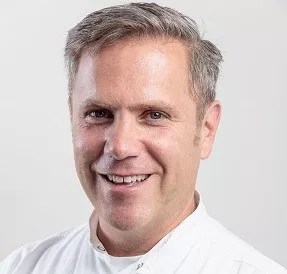 This is a dentist who focuses on the appearance, feel and function of replacement teeth. TDC Lead Dentist Dr Anthony Zybutz is a qualified advanced aesthetic dentist with over 20 years’ experience in restorative and cosmetic dentistry.
This is a dentist who focuses on the appearance, feel and function of replacement teeth. TDC Lead Dentist Dr Anthony Zybutz is a qualified advanced aesthetic dentist with over 20 years’ experience in restorative and cosmetic dentistry.
‘We know how important it is for your new teeth to look and feel as natural as possible. I spend a lot of time with my patients, discussing exactly how they want them to look so that we can give them teeth that fit perfectly and a smile they’ll love,’ says Dr Anthony Zybutz.
‘We get the very best results by using only the highest quality materials, taking time to get things absolutely right and paying great attention to detail.’
After-care or post-procedure care
This refers to the care given after your procedure. On completion of your Smile in a Day procedure it is important that you have on-going care. Our after-care at TDC is caring, well-structured and individualised.
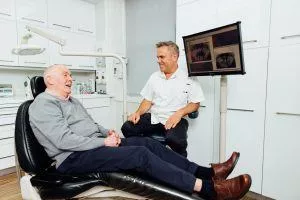 We pride ourselves on post-procedure care being absolutely first rate. On the day of your implant surgery you’ll be given dietary advice and detailed instructions as well as antibiotics and painkillers. You’ll also be provided with a team member’s personal mobile number so that you can call them at any time with queries or concerns.
We pride ourselves on post-procedure care being absolutely first rate. On the day of your implant surgery you’ll be given dietary advice and detailed instructions as well as antibiotics and painkillers. You’ll also be provided with a team member’s personal mobile number so that you can call them at any time with queries or concerns.
And so that your new teeth last a lifetime, we’ll enrol you on our Maintenance Programme, which involves coming back to see our dentists and hygienists for check-ups and maintenance as appropriate (usually every three to six months). It’s important to remember that your implants still need to be cared for to keep the bone and gums that hold them firmly in place healthy.
Our programme ensures that your new teeth will be maintained in top-notch condition and that any issues will be addressed before they become problematic. ‘Cleaning your new teeth is as simple as brushing and flossing your teeth twice a day,’ says Lead Surgeon Dr Michael Zybutz.
All on 4
A technique utilising four implants in each jaw, onto which all the replacement teeth are attached. At TDC we are not limited to four implants, but use as many as are needed in each case.
Arch
A dental arch is the full crescent of teeth located in either the upper or lower jaw. Full arch restoration (also known as full jaw restoration) is when a whole upper or lower jaw of replacement teeth is placed on implants. The majority of our patients at TDC require at least one full jaw restoration.
Bone grafting
In patients with severe gum disease, bacterial infection causes bone to be eaten away. This means that in some cases, bone grafts are needed to replace the missing bone before implants can be placed, which increases the risk of complications and can take several months.
‘With TDC Smile in a Day, however, there is rarely any need for bone grafting as the implants are placed at a precise angle to take advantage of existing available bone,’ says Dr Michael Zybutz. ‘This eliminates the need for bone-graft surgery and the months of healing time that involves.’
Bone resorption
This is a process that takes place throughout life and involves cells called osteoclasts breaking down bone tissue. In the mouth this can lead to the loss of bone in your upper and/or lower jaw. If you’ve lost a tooth, bone resorption takes place at an accelerated pace.
Bridge
Bridges, as their name implies, quite literally bridge the gap left by one or more missing teeth. They can be supported on either side by natural teeth or implants.
Bruxism
This is the medical term for clenching or grinding your teeth, usually while you’re sleeping, and is a habit affecting up to 10% of us. Bruxism, which is often linked to anxiety or stress, can damage teeth and also cause jaw pain and headaches.
Calculus
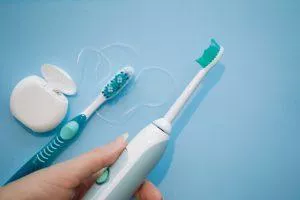 When plaque (see below) calcifies around your teeth it forms calculus, which is also known as tartar.
When plaque (see below) calcifies around your teeth it forms calculus, which is also known as tartar.
Calculus is difficult to get rid of yourself and may need to be removed by a dental hygienist. It can be prevented by good oral hygiene such as brushing and flossing regularly.
Conscious sedation
‘Conscious sedation is a very safe way of keeping patients relaxed and pain-free during implant surgery,’ says Dr Anthony Zybutz. ‘It doesn’t have the risks and side effects associated with having a general anaesthetic and keeps patients in a comfortable, responsive but dream-like state where they can’t remember very much about the procedure afterwards. Another advantage is that patients lose track of time so the procedure seems to be completed very quickly. This can be especially helpful for nervous patients.’
Consent form
It is a legal requirement that patients are provided with a consent form.
At TDC Implant Centres we provide our patients with a full description of the treatment envisaged, with the risks and benefits clearly explained. We also spend time going through treatment options with patients so that they are comfortable with their treatment decisions. During these discussions patients usually take the opportunity to ask questions.
Consultation
TDC Implant Centres offer free initial consultations* so that you can discuss possible treatment options with one of our qualified dentists. This includes assessing whether you’re likely to be suitable for Smile in a Day, and sedation options. ‘At this meeting we also do a full examination of your mouth and gums and take photographs,’ says Dr Anthony Zybutz.
CT scan
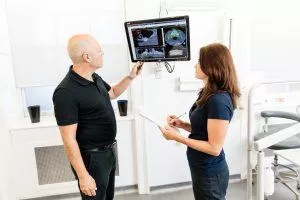 CT stands for ‘computerised tomography.’ It involves using a computerised scanner to take detailed X-ray images of your jaw from different angles to ascertain the quality of the bone in your jaw and confirm whether Smile in a Day is a suitable treatment for you.
CT stands for ‘computerised tomography.’ It involves using a computerised scanner to take detailed X-ray images of your jaw from different angles to ascertain the quality of the bone in your jaw and confirm whether Smile in a Day is a suitable treatment for you.
‘We use these images, along with all the clinical data from your first consultation, to plan where we’re going to place your implants during surgery,’ says Dr Michael Zybutz.
Dental implant
These are little posts resembling screws that can be placed into your jawbone to provide a stable base onto which artificial teeth can be attached to replace teeth that are missing, loose or decayed.
‘At TDC Implant Centres we use the highest-quality implants made from titanium, a metal that is very strong and highly resistant to corrosion. The bone surrounding the implant fuses with it in a process called osseointegration [see below],’ says Dr Michael Zybutz.
Dentures
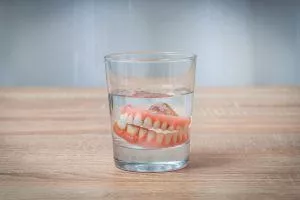 Dentures, or false teeth, are removable artificial teeth and can be made of plastic (acrylic), metal or nylon.
Dentures, or false teeth, are removable artificial teeth and can be made of plastic (acrylic), metal or nylon.
Complete dentures replace all your upper or lower teeth, while partial dentures replace individual teeth.
Dentures should be brushed and soaked in a denture-cleaning solution daily to help remove more stubborn stains and plaque. They are normally removed at night. Unlike dental implants, they do not remain fixed in your mouth.
Extraction
The removal of teeth.
‘If you have to have teeth removed (extracted) before having Smile in a Day, we’ll do that on the day of surgery to save you having an extra surgical appointment,’ says Dr Michael Zybutz. ‘This is not only less stressful, but also saves weeks of healing time and minimises gum and bone shrinkage, thereby providing more bone for the implants.’
Fixed teeth
 Fixed teeth are replacement teeth that, unlike dentures, can only be removed by your dentist. Smile in a Day patients have fixed teeth fitted on the day of surgery and wear them throughout the healing period – usually about three months. The final fixed teeth are placed at a non-surgical appointment (see ‘Smile in a Day,’ below).
Fixed teeth are replacement teeth that, unlike dentures, can only be removed by your dentist. Smile in a Day patients have fixed teeth fitted on the day of surgery and wear them throughout the healing period – usually about three months. The final fixed teeth are placed at a non-surgical appointment (see ‘Smile in a Day,’ below).
‘Fixed teeth look and feel like natural teeth and are much more comfortable than the removable dentures or plates that patients having traditional implants are given,’ says Dr Anthony. ‘This means that soon after surgery you can eat whatever foods you like without worry, even crunchy ones.’
Gingivitis
This is the mildest form of gum disease (see below) and is caused by plaque.
Gum disease
Bleeding, sore, infected or swollen gums and bad breath are a sign you may have gum disease, which is when the soft tissues along the gumline become inflamed due to a build-up of plaque (see below), a sticky substance containing harmful bacteria.
There are three stages of gum disease: gingivitis, periodontitis and advanced periodontitis, the most severe type, which affects the bone and tissues holding your teeth in place resulting in loose teeth that may eventually fall out or have to be removed. People usually don’t show signs of gum disease until they are in their 30s or 40s.
Integrate/integration
Also known as osseointegration (see below), this is the natural process whereby your jawbone and the titanium implants placed into it, fuse together. This takes place during the two to three months after the implant is placed.
It was first observed by Per-Ingvar Brånemark, Professor of Anatomy at the University of Gothenburg in Sweden, who’s since become known as the ‘father of modern dental implantology’. The dental implant he placed in his first human patient in 1965 was still in place 40 years later.
Immediate occlusal loading (IOL) procedure
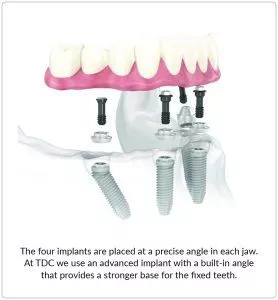 This involves inserting titanium implants into a patient’s jaw and then attaching fixed temporary teeth to them on the same day, unlike with traditional implants where there is a wait of several months between the implants being placed and the fixed teeth being attached.
This involves inserting titanium implants into a patient’s jaw and then attaching fixed temporary teeth to them on the same day, unlike with traditional implants where there is a wait of several months between the implants being placed and the fixed teeth being attached.
Our Smile in a Day treatment is an example of an IOL procedure.
At TDC we routinely attach fixed, functioning teeth on the same day as the implants are placed, so patients leave with secure teeth and a new smile.
These fixed teeth remain securely in place until they are exchanged for the final, permanent set about three months later.
Implant stability
This is an assessment of how well the implant has fused with the bone, something that’s key to implants being successful.
At TDC we guarantee your bone will integrate with your dental implant. This means that if it hasn’t done so by the time we need to replace your temporary fixed teeth with the permanent set (usually two to three months after surgery), we will either replace the implant or give you an additional implant to support your teeth at no additional cost.
The long-term success of dental implants is the responsibility of the patient as success depends heavily on home care, hygienist visits, continuing not to smoke and regular dental check-ups. Both sets of fixed teeth are subject to wear and tear ‒ just like natural teeth ‒ but TDC will repair any chips or breakages quickly and easily, free of charge, for one year after they’ve been placed.
Impressions
These are the moulds that are used to create perfectly fitting teeth: they’re vital to the success of the implant procedure. To ensure a perfect fit for your new teeth, we take impressions of your existing teeth, along with very precise measurements.
‘The look and feel of both your temporary fixed teeth and your final, permanent teeth are very important as they can affect your smile and ability to eat,’ says Dr Anthony.
Osseointegration
This process (see ‘Integrate/integration’, above), where the bone and implant fuse together, typically takes two to three months with Smile in a Day and results in implant stability (see above).
Periodontist
According to the American Academy of Periodontology, “A periodontist is a dentist who specializes in the prevention, diagnosis, and treatment of periodontal disease, and in the placement of dental implants. Periodontists are also experts in the treatment of oral inflammation.”
Periodontitis
A more severe form of gum disease than gingivitis (see above) caused by the harmful bacteria in dental plaque. It can lead to tooth loss because the gums pull away from your teeth and form spaces that can become infected. Your immune system fights these bacteria and the resulting toxins begin to destroy the connective tissue and bone that hold your teeth in place, eventually resulting in loose teeth that fall out or have to be removed.
Permanent teeth
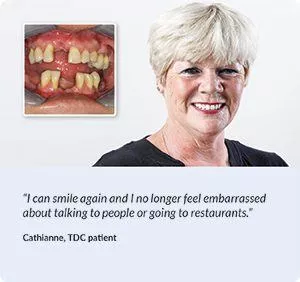 With TDC Smile in a Day, the temporary teeth remain securely fixed in your mouth until they are exchanged for the final, non-removable set of permanent teeth about three months after surgery. This ensures that your new teeth fit perfectly with your healed gums.
With TDC Smile in a Day, the temporary teeth remain securely fixed in your mouth until they are exchanged for the final, non-removable set of permanent teeth about three months after surgery. This ensures that your new teeth fit perfectly with your healed gums.
‘The permanent teeth are custom-made for a perfect fit, and are formed from hard-wearing advanced composite materials fused to a robot-milled titanium base.’
‘We have found that this provides the ideal combination of strength and resilience together with “shock absorber” properties by mimicking natural tooth wearability and providing long-term strength’ says Dr Anthony Zybutz.
Plaque
Plaque is a film of sticky, colourless bacteria that builds up on teeth if it’s not removed by twice-daily brushing and flossing. Plaque contains both harmless and harmful bacteria, and it’s the latter that cause tooth decay because they feed on the sugars in our food and release acids that attack tooth enamel. If it’s not removed within 48 hours, plaque hardens to form something called tartar (see below) or calculus (see above) which needs to be removed by a dental professional. Plaque is the primary cause of gum disease (see above).
Post-operative discomfort
Some discomfort and bruising is to be expected after any surgery or dental procedure, including Smile in a Day. An experienced surgical team can help ensure that this is kept to a minimum so that it can be controlled with simple over-the-counter medication such as paracetamol or ibuprofen.
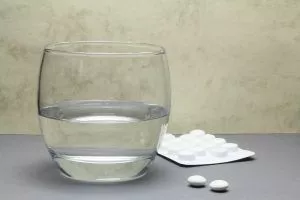
‘None of our patients at TDC Implant Centres has ever found it necessary to use prescription-only painkillers,’ says Dr Michael Zybutz. ‘In fact, most of them remark on how surprisingly pain-free the procedure is – much less than expected.’
TDC reviews on independent review sites Feefo and Trustpilot confirm this:
‘I was very pleased with the procedure and surprised how painless it was.’ (Feefo, June 2017)
‘Michael was very re-assuring that I wouldn’t feel any pain and he was quite right, although after the anaesthetic wore off there was minor discomfort. I had some bruising to my face and some swelling but followed the post-op care I’d been provided with and was soon feeling fine.’ (Feefo, June 2017)
‘I can strongly recommend TDC to anyone thinking of implant surgery. Most remarkably I had no pain at all during and after the surgery.’ (Trustpilot, May 2017)
Prosthesis
This is another name for the temporary fixed teeth that are attached to your dental implants on the day of surgery.
Septicaemia
Also known as sepsis or blood poisoning, this is a potentially fatal condition in which harmful bacteria invade the bloodstream. Septicaemia is now on the rise, especially in hospitals, because of the increase in antibiotic-resistant bacteria.
‘In over 20 years, we’ve never had a single case of septicaemia at TDC Implant Centres,’ says Dr Michael Zybutz. ‘We’ve achieved this through implementing strict infection-control protocols and rigorous medical screening of our patients to minimize risk factors.’
Sinus augmentation
This surgical procedure, also known as sinus lifts, involves using synthetic bone or bone taken from elsewhere in the body, and inserting it into the sinus to encourage new bone to grow in order to ensure that there is enough bone available in the upper jawbone to insert the implants.
‘It’s rare for Smile in a Day patients to need augmentation as our implants are accurately placed specifically to utilise the maximum amount of remaining bone, something that takes a high degree of skill and experience. In situations where there is simply insufficient bone we also have the option of zygomatic implants [see below],’ says Dr Michael Zybutz.
Smile in a Day
This is a life-changing procedure used to give people with severe dental problems a full set of new teeth in a single day. To achieve the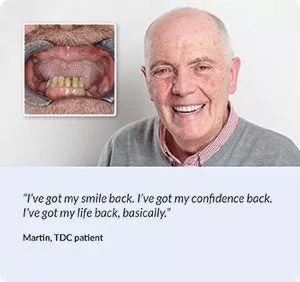 best and most successful results this advanced technique requires a skilled and experienced team.
best and most successful results this advanced technique requires a skilled and experienced team.
‘On the day of surgery we remove any remaining teeth in the jaw, place the implants at a very precise angle to maximise the use of available bone, and then attach a set of fixed teeth onto the implants,’ says Dr Anthony. ‘These temporary teeth are then replaced with a final, permanent set about three months later when the gums have settled. This exchange is done at a non-surgical appointment.’
At TDC Implant Centres we routinely perform this procedure, restoring bite function and a natural-looking smile.
Specialist surgeon (dental)
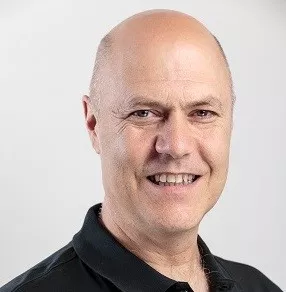 Specialist surgeons must be registered with the General Dental Council (GDC) and have completed a specialist training programme approved by the GDC.
Specialist surgeons must be registered with the General Dental Council (GDC) and have completed a specialist training programme approved by the GDC.
In the UK, only dentists who have completed these years of extra training can call themselves a specialist.
Dr Michael Zybutz, Specialist Periodontist and Lead Surgeon at TDC Implant Centres, is the only specialist surgeon in the UK accredited by the American Academy of Cosmetic Dentistry.
Tartar
This is another name for calculus (see above).
Teeth in a Day / Same Day Teeth
Same-day implant treatments can be referred to in different ways including Teeth in a Day, Smile in a Day (see above), Same-Day Teeth and All on 4 (see above). The procedure can be performed on single or multiple teeth, or on full sets of teeth.
At TDC the majority of our patients require at least one full jaw restoration. We routinely, and successfully, treat the most complex case of extreme bone loss, including cases where people have been told they are not suitable for implants.
Titanium
Titanium is a metal widely used in the medical profession for prosthetics and plates due to its non-corrosive properties and the fact that it integrates with the jawbone more reliably than alloys, which are cheaper. At TDC we use implants made of pure titanium because we’ve found this gives the best, long-lasting results and is one of the reasons we have such a high success rate with placing implants.
Treatment plan
This is a written plan detailing what treatment a patient will be receiving. Ideally it should be easy to understand, should describe the dental issues and the treatment envisaged, and clearly outline the cost of the treatment. It should not simply be a list of billable items or codes.
At TDC, once your surgeon has confirmed that you’re suitable for Smile in a Day, you’ll be sent your personalised treatment plan summarising your specific dental issues and your treatment options. Included will be a consent form (see above) for you to sign. Once you are satisfied with the proposed treatment and we have received your signed consent form, we will book in your treatment dates.
Zygomatic implants
Whereas most implants are placed into your jawbone, these are special implants that are inserted into the inside of your zygomatic bone, also known as your cheekbone. There is an additional cost if you’re having zygomatic implants.
‘Zygomatic implants are used for patients with extreme bone loss who don’t have enough bone in their upper jaw to support conventional implants and keep them stable,’ says Dr Michael Zybutz.
‘These implants utilise the inside of the cheekbones. TDC Implant Centres is one of a very small number of dental practices that can offer this service as the procedure is more complex than standard implants and therefore requires an experienced surgeon. Success rates with zygomatic implants are excellent.’
For more information about TDC, our Smile in a Day procedure (including our dental implant cost), call our friendly Patient Advisors on 020 3553 6415 or request your free consultation* here.
The award-winning TDC team 2018
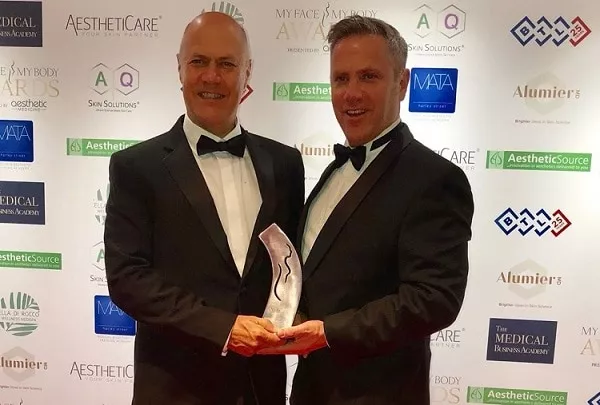
On March 17th, TDC Implant Centres were delighted to win the Best Customer Experience Award at the My Face My Body Awards 2018. These global awards celebrate innovation and customer excellence within the aesthetics industry.
Below, TDC’s Dr Michael and Dr Anthony Zybutz talk about winning the award and why patient care is so important to them in the dental implant process.
How did you feel when you were announced as winners?
MZ: Fantastic! Being shortlisted as a finalist – in probably the most competitive category – was daunting; we take patient care very seriously and here was a way to have our efforts independently verified and rewarded. We really wanted to win.
When TDC were announced as the winners we were so excited we jumped out of our seats and hugged each other. We then all went up onto the stage to receive our award.
Why does winning this Best Customer Experience Award matter to you and your team?
AZ: Each one of our patients has their own story to tell and their own reasons for needing treatment before they come to us.
They choose us at TDC for our consistently outstanding results, the very highest standards of patient care throughout the treatment process and beyond, and a life-changing experience. So, we put a huge amount of effort into making it a really positive and life-affirming experience for each patient as an individual.
MZ: Yes, it’s really gratifying to receive an award that is all about customer service. We are also very proud of our five-star patient reviews on Trust Pilot and Feefo. They are all independently verified which is important so that they can confirm to us that our patients agree that we really are doing the best job. They also help and re-assure people considering the treatment that they can have peace of mind when they come to TDC.
What were the criteria for entering the awards?
AZ: The first step was to submit a very detailed entry form and additional material, all showing how patient care is at the very forefront of what we do at TDC, and then encourage people to vote for us.
Once we were confirmed as a finalist, we were told we would be visited by a mystery shopper who actually comes into the practice and has a consultation. We still don’t know who the mystery shopper was or when they came in, but we do know that they were very impressed! Finally, a panel of judges looked at everything to make a final decision.
What makes the patient care at TDC so exceptional?
MZ: Everything we do is underpinned by the highest standards of clinical excellence and patient care – it’s what we are known for. We believe that quality matters – our patients are taking an important step that affects their overall quality of life, and they are making a significant investment in their well-being. This is our patients’ health – only the best will do.
This ethos runs through both our clinical team and our patient contact team so that our patients are thoroughly cared for from when they first contact us right through their treatment and onwards to maintenance of our work.
AZ: We make sure that we are the very best on every level. We offer specialist clinical care using the latest technology and use the highest quality implants and materials to deliver consistently outstanding results. These things combine to give real peace of mind.
Michael is a Specialist Surgeon and Periodontist with over 25 years’ experience in placing implants, which means we can treat even the most challenging cases – even people who have been told that nothing can be done for them.
Does it make a difference that you are brothers?
AZ: Yes, I really think it does. As the Lead Surgeon, Michael performs the surgical procedure and, as the Lead Dentist, I ensure the perfect look, fit and function of the teeth. Being family, we work seamlessly together. We just both know how the other one works.
MZ: I also think it sets the feel and the culture at TDC – we are family run and proud of it. I think patients appreciate our culture of warmth and trust – once you come here you become part of the TDC family.
So what is the secret of your success?
MZ: Without a doubt – our fantastic team. The people who work at TDC are chosen for their skills and experience, but also for their caring approach towards our patients. Everyone at TDC is the very best at what they do – professionalism on every level is paramount – and they all care as much as we do.
What do your patients say about you?
MZ: We have hundreds of independent reviews and video testimonials and it makes us very proud to get such positive feedback. An example:
‘Viktorija who looked after me during my rest period was so kind and caring. Dr Michael Zybutz is a truly amazing surgeon and I can never thank him enough for giving me the smile I always dreamed of.
My advice for anyone contemplating this procedure with TDC Implant Centres is “do it, you will not look back”. It has given me confidence, happiness and most importantly a smile that I could only dream of.’
What should someone do if they would like to know more about TDC and your Smile in a Day procedure?
AZ: We aim to provide as much information as possible on our website to help inform people.
We offer a free, no obligation consultation* at all of our two implant centres (Harley Street and Folkestone). These can be requested online or by calling 020 3553 6415. Our friendly and highly trained Patient Advisors can answer any questions and book in consultations.
Can I have dental implants if I smoke?
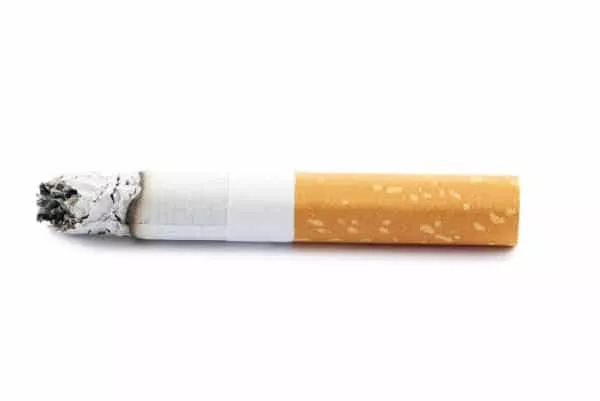
‘“You saved my life ‒ you really did,” isn’t something I expected to hear so often when I trained as a dentist,’ says Dr Anthony Zybutz, Co-founder and Lead Dentist at Total Dentalcare Implant Centres (TDC).
‘When my patients say this to me, or write it in their online reviews, they’re often not just referring to the effects TDC Smile in a Day dental implants have had on their day-to-day lives by transforming the way they look, eat, and feel about themselves, but how it helped them to stop smoking.’
Smoking is not a barrier
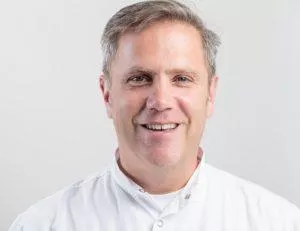
We always celebrate this outcome at TDC but are aware that many people wrongly believe they can’t have tooth implant procedures unless they quit smoking.
This isn’t the case.
‘Of course, everyone now knows how bad smoking is for your health ‒ it increases your risk of developing everything from lung cancer to heart disease.
But we don’t believe that smoking should prevent our patients having the TDC Smile in a Day dental implant procedure,’ says Dr Anthony.
Assessing the risks
‘We’re really upfront with our patients and let them know the risks of continuing to smoke and how it can negatively impact on their health and surgical outcome as well as the long-term prognosis for their teeth,’ says Dr Anthony.
‘Smoking causes gum disease for both teeth and implants, damages the bone structure of the jaw, and results in bad breath and stained teeth.
We also let them know how the habit will affect the chance of success of their dental implants, but we’re non-judgemental and don’t preach to our patients or try to bully them into quitting.
However, if our patients need to have bone or gum grafts in addition to implant surgery we will not go ahead if they smoke as smoking has been shown to cause a high failure rate for grafting procedures.
Something else our patients need to consider is that unless they quit for good, smoking will continue to increase their risk of periodontal infections and bone loss leading to tooth loss.’
And what about smokers where smoking has already caused a significant amount of damage to their jawbone?
‘In most cases, even where there has been a lot of bone loss, we can utilise our Smile in a Day protocol to place dental implants. In patients with extreme bone loss, a zygomatic or cheekbone implant may be needed for the dental implant to succeed,’ says Dr Anthony.
How smoking will affect your dental implants
So exactly how does smoking negatively affect the placement of dental implants?
‘Our dental implants are made from titanium and when we place one in your jawbone the bone and gum integrate with the implant and hold it firmly in place,’ says Dr Anthony.
‘However, nicotine constricts your blood vessels, depriving the tissue in your mouth of oxygen and nutrients, and also reduces saliva flow, all of which slows down the healing process. Smoking also lowers your immunity and ability to fight infection.
Studies have shown that this means that integration success rates with smokers are about 90% compared with the 98% success rates we have with non-smokers. In other words, success is still highly predictable and hence being a smoker absolutely shouldn’t deter patients from having dental implants placed.’
Looking and feeling younger
Many patients find that when they’re making such a big investment in their teeth, they’re also ready to commit to quit. ‘It’s as if they’ve drawn a line in the sand,’ says Dr Anthony.
‘Smile in a Day makes our patients look and feel younger (often because they no longer have to wear dentures) and it gets rid of the heavy infection in their mouths. Many realise that being a smoker doesn’t fit with their new, more confident image. That’s why we give them as much support as we can to help them stop smoking before having surgery and suggest they speak to their GP about accessing help in doing this on the NHS.’
Emotional support
Patients often use smoking-cessation tablets (Champix and Zyban) and nicotine-replacement products (patches, gum, lozenges, inhalators, mouth and nasal sprays and e-cigarettes) to help them quit, but it’s important to be aware that there can also be an emotional or habitual element to smoking that these methods don’t address. ‘That’s why we provide our patients with a copy of the best-selling book Allen Carr’s Easy Way to Stop Smoking,’ says Dr Anthony.
‘We also refer certain patients to clinical hypnotherapist Lisa Jackson, who has over 10 years’ experience in combating dental phobias and helping smokers during the quitting process. According to a meta-study published in the Journal of Applied Psychology and reported in New Scientist magazine, hypnosis is the most effective way of stopping smoking – the study found that it’s five times more effective than willpower alone.’
A warm welcome at TDC Dental Implant Centres
‘Whether you’re a smoker or non-smoker, the professional team at TDC looks forward to meeting you and discussing how we can help you to have a smile you’ll love,’ says Dr Anthony.
To find out more about the benefits of Smile in a Day same-day dental implants, how treatment can help you to have a more confident smile even if you smoke, and the award-winning dental implant care that we offer, book your free consultation* with one of our friendly Patient Advisors by calling 020 3553 6415.
Is dental implant treatment safe?
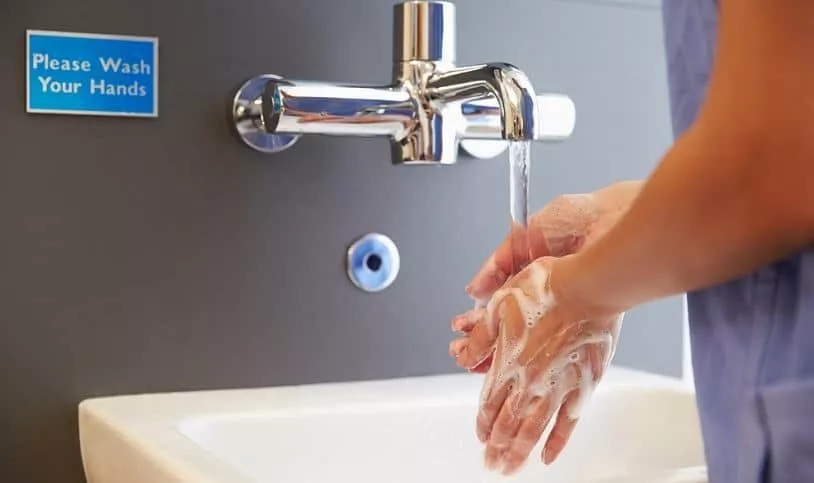
If you’re considering having dental implants you may have been alarmed by media headlines warning that it’s possible to develop septicaemia from the procedure.
Septicaemia, also known as blood poisoning or sepsis, is a potentially life-threatening condition in which harmful germs (bacteria) invade the bloodstream.
“For over 25 years we’ve never had a single case of septicaemia at TDC,” says Dr Michael Zybutz, Lead Surgeon at Total Dental Care Implant Centre (TDC) in Harley Street. “That’s something we’re incredibly proud of.”
Septicaemia explained
“It’s possible to get septicaemia from something as simple as a fall, or cutting yourself while chopping vegetables in your kitchen,” says Dr Zybutz.
“Our body is full of bacteria, even during normal functioning, and generally our immune system is able to kill harmful bacteria that pose a threat to our health. When bacteria gain access to areas normally not open to them, or when harmful bacteria invade the body, septicaemia may result.
Septicaemia is now on the rise, especially in hospitals, because there’s been an increase in antibiotic-resistant bacteria. We simply don’t have the range of effective antibiotics we had before.”
Putting safety first
TDC’s track record with infection control is exemplary, and its highly experienced cosmetic dentists place the highest possible emphasis on patient safety. Dr Zybutz explains that TDC maximises successful outcomes, including avoiding septicaemia, by doing the following:
• rigorously screening patients to minimise risk factors
• creating a sterile work environment
• scrubbing up thoroughly
• using appropriate antibiotics
• working as a team.
Rigorously screening patients
“The best way to avoid septicaemia is a proper protocol starting with the selection of patients,” says Dr Zybutz.
“Some people are more susceptible to infections such as septicaemia if they have chronic health issues or have had some types of radiation therapy.
Recreational drug users and people taking certain prescription drugs for conditions such as osteoporosis and cancer are also more at risk.
That is why we take a very detailed medical history before placing dental implants, and if there’s any doubt about a patient’s suitability for having dental implants we consult with their GP or other medical specialist, as appropriate.”
Creating a sterile work environment
“The human mouth is full of bacteria,” says Dr Zybutz, “but what we don’t want to do is introduce the type not usually found there which may mean that patients with weakened immune defences cannot resist this new bacterial invasion.”
TDC utilises the very best techniques and procedures to sterilise all the equipment used when carrying out dental implant procedures, and also uses disposable sterile gloves, masks and gowns.
“Even though we’re not obliged to do it, we think it’s vital to fully drape both the patient and all surfaces with sterile surgical drapes when placing implants in order to ensure the operating environment is as sterile as it possibly can be,” says Dr Zybutz.
Scrubbing up thoroughly
Another key infection-control measure is being scrupulous about scrubbing up. Thorough hand washing is vital to rid the skin of bacteria so that these cannot be passed on to the patient. Failing to scrub up properly has been shown to be a key cause of the spread of bacteria.
“We always do a proper surgical scrub-up ‒ like you’d see in a hospital ‒ where we wash and scrub both our hands and forearms with antiseptic solution before every patient procedure as research has shown this is vital for effective infection control,” says Dr Zybutz.
Using appropriate antibiotics
Prescribing antibiotics is another way that the highly experienced dentists at TDC ensure all procedures are free of complications.
“We ensure patients take an appropriate regime of antibiotics before, during and after the procedure to help not only avoid septicaemia but to also minimise the chances of antibiotic resistance,” says Dr Zybutz. “This means the antibiotics are in the patient’s bloodstream before we even pick up an instrument.”
Working as a team
Having dental implants is a very safe procedure provided they’re correctly placed by an experienced and fully qualified dental team.
Dr Zybutz credits his tight-knit team for TDC’s impeccable infection-control record: “My team is the very, very best,” he says.
“They’re all highly competent and we rely on and trust each other completely. In fact, anaesthetists often comment on how closely we work together and have used TDC as an example of good teamwork when lecturing to other dentists.
Quality underpins everything that we do – our staff, the highest quality dental implants and state-of-the-art equipment, infection control standards, and patient care.”
Transforming lives
Dr Zybutz says that it’s incredibly rewarding working at TDC because they’re able to transform the lives of patients with serious dental issues by giving them a perfect smile using the revolutionary Smile in a Day teeth replacement treatment. “Our patients often cannot believe what a difference dental implants can make,” he says.
“Take one of our case studies, patient John Loach, for example. Having avoided dentists for 30 years ‒ and smoked for 40 years ‒ he came to TDC with only a few teeth remaining in his upper jaw, meaning he could only eat very soft food and was embarrassed to smile. After having dental implants he’s now able to eat whatever he likes and says he’s now brimming with confidence and absolutely delighted with his new teeth.”
In safe hands
John isn’t the only patient who’s keen to talk about the positive impact TDC implants have had on his life.
“TDC subscribes to Trust Pilot and Feefo – totally independent online patient review systems where it’s possible to leave genuine, unedited feedback on our Smile in a Day treatment,” says Dr Zybutz.
“We think the number of five-star reviews we’ve received speaks volumes about the results we have achieved for our patients, their faith in us ‒ and our safety record.”
To find out more about Smile in a Day, get in touch with one of our friendly Patient Advisors by calling 020 3553 6415 or by booking your free consultation*.
Not all dental implant providers are the same – and every patient has individual needs, preferences and requirements. If you’re considering dental implant treatment, read our page “Questions to ask your implant dentist” to help you find the right dental implant team for you.
Sedation – virtually pain-free treatment
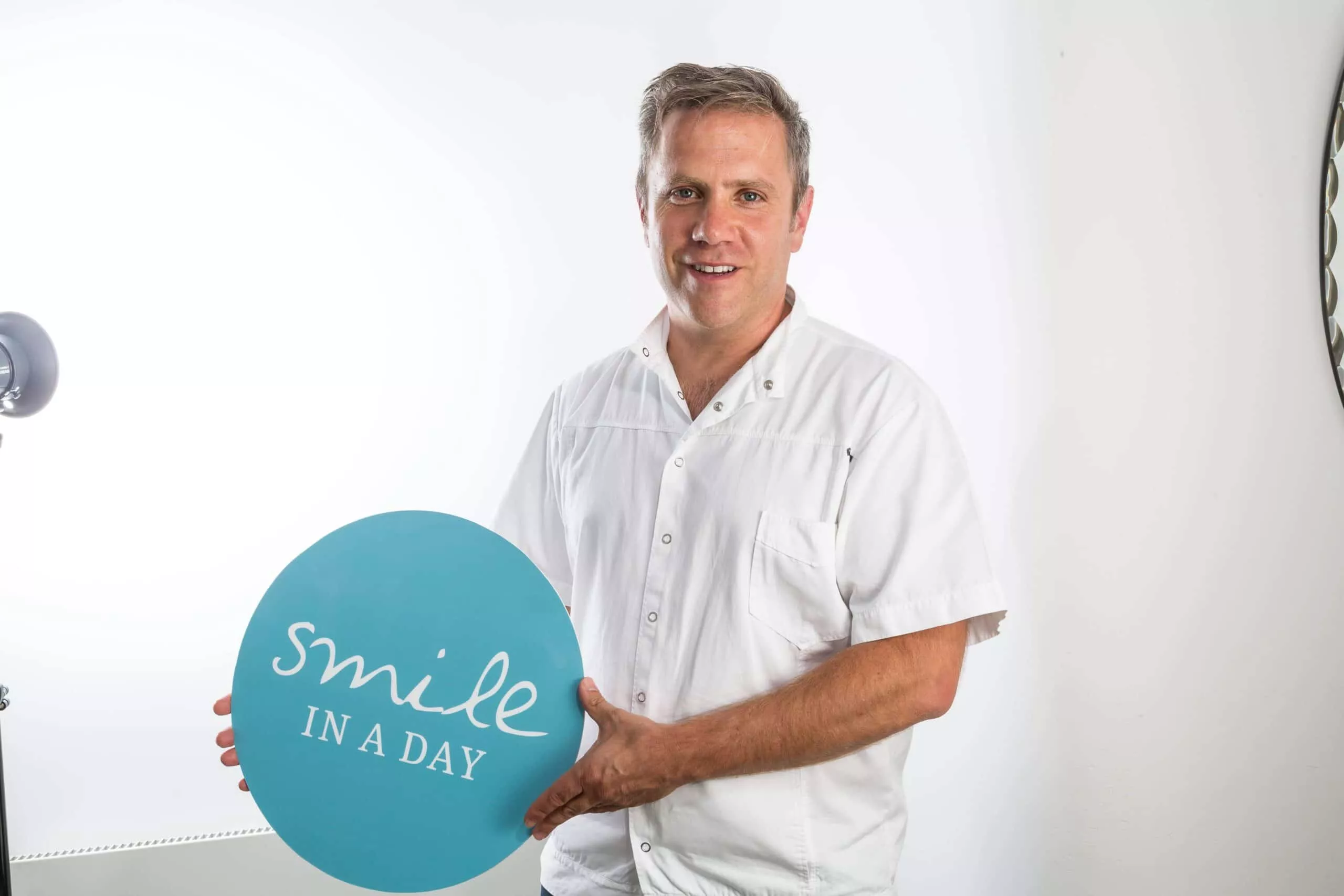
If there’s one question every dentist is used to answering, it’s this one: “Does it hurt?”
For decades, the answer was unfortunately yes. Most people over the age of 30 will remember trips to the dentist where discomfort was just part and parcel of the treatment.
But not any more. The great news is that, thanks to advances in technology, we can now carry out very complex procedures without patients feeling any pain at all.
A new practically painless approach
At Total Dentalcare (TDC) Implant Centres we use the latest surgical techniques, so even when we replace all a patient’s teeth with titanium implants, they won’t feel a thing. That may sound hard to believe, but the reason we can do it is down to a process called ‘conscious sedation’.
In simple terms, conscious sedation means that rather than a risky general anaesthetic putting you to sleep, you instead feel very relaxed, don’t feel any pain, and have little memory of the surgery.
It is carried out by one of our trained medical sedationists, who describe it as ‘The Twilight Zone’ where you are aware of what is happening (which makes it safer than a general) but you feel relaxed and comfortable.
Conscious sedation is extremely safe, without the associated risks and side effects of a general anaesthetic. In fact, it’s probably one of the most advanced techniques available, and why we recommend it for our implant patients.
In the years we have been offering implant treatment, we have never had a patient tell us it was painful. A little discomfort for a couple of days after the treatment is common, but our patients have never needed anything stronger than regular ibuprofen and paracetamol.
Straight from the patients themselves
This is what one of our patients, Jonathan Anderson, said about the painkilling technique: “During the operation you’re under sedation, and it’s like being in a nice soft bubble. There’s no pain at all, and it feels like it only takes a few minutes.”
Another patient Keith Marner agreed: “I think the ‘conscious-sedation’ is what really makes the procedure. Even now I can’t really describe it, as I’d never experienced anything like it before. It was as if you know what’s happening, but you don’t really care too much. In fact, I felt so good after it was finished that I just wanted a blanket so I could drift of to sleep.”
We gave Shannon Crisp implants too, and she described sedation as being “in this state of dreamland. I could respond to questions, but didn’t feel anything at all”.
We think this really demonstrates how things have moved on immeasurably in the world of dentistry. So if you would like implants because of loose, missing or painful teeth, but are worried about the surgery, give us a call. We can show you that scary dental treatment really is a thing of the past, and we can give you a Smile in a Day. The sedation is so effective, you’ll barely believe you’ve had a dental implant procedure at all.
Book your free consultation* or call 020 3553 6415.
Don’t wait

Dental problems can creep up on you. It’s not simply a case of having healthy teeth one month, then needing dental implants the next.
Many of our patients come to us after years, sometimes decades, of discomfort and pain. Often they say the same thing: “I can’t believe I let it get so bad.”
Yet we can certainly understand how it happens.
Maybe first a couple of teeth at the back of the mouth get loose and fall out because of gum disease. But nobody can see them, so perhaps it’s ok.
You hope the pain doesn’t get worse, so optimistically avoid seeing the dentist about it because perhaps now the bad teeth are gone, things will sort themselves out.
But the discomfort continues, and the infection spreads. Now you avoid the dentist, not because you think it’s getting better, but because you can’t bear the idea of a letting instruments near such a sore mouth. As you’d imagine, it then becomes a dangerous cycle that people get trapped by.
Break the cycle of discomfort
Eventually what finally convinces many people to seek our help is that they lose a tooth at the front of their mouth. Six may have already gone from the back, but it’s when it stops people from smiling in public that they decide it’s time to act.
However, some people will think they still need to get a healthy mouth before they can think about implants. They assume they need to get rid of their infection first before we can help them. But that’s not the case.
For many people, they never get to the point where the infection is under control. Their mouths become so painful that they daren’t put a brush anywhere near their teeth.
If they go to the dentist, the pain is even worse, so they avoid that too. So if they can’t clean their teeth and won’t let anyone else either, how will they ever get them into a good enough condition for dental implants?
No need to wait
The good news is that you don’t need to get rid of the infection before you come to see us. If you keep delaying it, you will lose more and more structure in the bones of your mouth and jaw, and that will make securing implants more difficult. The longer you leave it, the harder it gets.
And there’s no need to ask your dentist to take all your teeth out in preparation either. Again, it’s better if we do that, because then we can make sure your mouth is in the best possible condition for implants.
At TDC we see many patients who have made it so much harder for themselves by putting off their treatment. So our advice is that even if you think it’s too early for dental implants – or if your regular dentist says your teeth are too unhealthy – come and see us for a free consultation*.
If we think you’re being premature and there is a way of helping your teeth and gums back to health, we will certainly say so and you won’t have lost anything. But if dental implants are for you, making an early decision could end up saving you years of pain and give you back the confidence you once had.
As one of our patients said: “I have only one regret – why did I leave it so long? This treatment has literally transformed my life.”
If you are interested in our in Smile a Day therapy, arrange your free consultation* and we can talk you through it all. Alternatively, you can call 020 3553 6415 for a chat.
